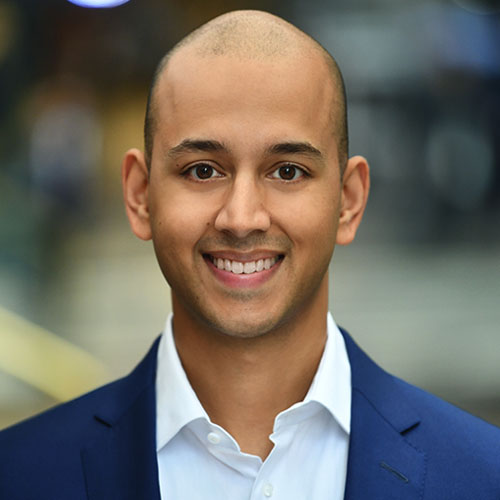As Consumers Play Larger Role in Healthcare Choices, Deal Opportunities Abound for Vestar
PE Hub
By Aaron Weitzman
Published March 7, 2022
“Telehealth will increasingly become an integrated component of how care is delivered,” Vestar’s Mike Vaupen said.
PE Hub’s ongoing series on private equity firms investing in healthcare continues with insights from Mike Vaupen, who joined Vestar Capital Partners as managing director and co-head of healthcare in September. Previously, Vaupen was an investment professional at Welsh, Carson, Anderson & Stowe. Prior to that, he worked at Pamplona Capital Management, where he helped to establish the firm’s healthcare vertical, and also previously worked in the healthcare group at Oak Hill Capital Partners. Vaupen began his career in the healthcare investment banking division at Morgan Stanley. He outlined Vestar’s approach to healthcare investing.
Investment Strategy
“We identify the long-term mega trends that we believe will continue to shape and drive the healthcare sector over the next five, 10-plus years. We then work to target specific themes, sub-sectors, and business models that are aligned with these trends and are a good fit with our investment criteria,” Vaupen told PE Hub. “As one example, we identified consumerization as a key theme, as patients continue to act more like consumers of healthcare and play an increasingly active and informed decision-making role in their healthcare choices. That led to our investment in Friday Health Plans last year.”
Two main areas of focus for the firm are life sciences and virtual care. “We think both virtual care and life sciences have staying power and lasting implications for how these sectors will evolve, which creates investment opportunities,” he said.
“In the life sciences market, we are focused on technology that streamlines research and development of new drugs and enables digital engagement with patients and providers,” Vaupen explained.
“Virtual care has shown enormous promise and has become more widely accepted. Going forward, telehealth will increasingly become an integrated component of how care is delivered,” Vaupen said. “There will be less of a distinction between virtual care and in-person care. Patients will look to find convenient and tech-enabled ways to receive care. Providers will look for ways to reach more patients and solve their staffing challenges – virtual care addresses both of those issues.”
Merger of Tech and Healthcare
Vestar spends a lot of time at the intersection of technology and data in healthcare, as a number of the firm’s investments have been aligned to those themes, like Quest Analytics and Press Ganey.
Healthcare still has a long ways to ago when it comes to technology adoption, Vaupen explained.
“Electronic medical records, for example, were primarily designed to be digital versions of paper charts, so that was version 1.0 of moving healthcare from a paper-based industry to one that is digital,” he said. “As a result, the systems that were designed and implemented don’t interact well with each other, and that creates complications when trying to standardize data sets. There are structural challenges that prevent healthcare from moving faster in adopting technology and being able to harness the full value. We will get there, but it will take time.”
Standing Out From Competition
Longevity is a differentiating feature, Vaupen said.
“We have invested in the healthcare space for 20+ years, over multiple business and economic cycles and periods of technology innovation,” he said. “More specifically, we aim to seek out opportunities where we are uniquely qualified to add value through a combination of our prior investment experience, domain expertise, industry relationships and creative approaches to growth. We also focus on being good partners to management teams and working alongside them to scale and build lasting and sustainable growth strategies.”
Regulatory Roadblocks
One of the reasons healthcare is different from other sectors is that it is highly regulated. Recently, the Department of Justice blocked the mega deal merger between United Health and Change Healthcare – which serves as a reminder that there can be regulatory roadblocks when investing in this space.
DOJ’s blocking the deal serves as “a good reminder that the other aspect of healthcare that makes it challenging and complex, but also full of opportunity and potential, is the regulatory overlay,” Vaupen said. “As investors, we are always thinking about the regulatory environment, and we monitor it closely. Sometimes our investment themes are specifically designed to capitalize on regulatory trends and tailwinds. Where there are challenges, there is also opportunity.”
Firm Facts
Founded in 1988 and based in New York City, Vestar is a US mid-market private equity firm specializing in management buyouts and growth capital investments. Vestar invests in and collaborates with incumbent management teams and private owners to build long-term enterprise value, with a focus on consumer; business and technology services; and healthcare. The firm has invested over $8 billion in 84 companies – as well as more than 200 add-on acquisitions – with a total value of approximately $50 billion.
Recent Investments
Vestar invested in Friday Health Plans in 2021.
Recent Exits
Vestar partially exited Healthgrades in 2021 after investing in 2010. Vestar exited Civitas Solutions in 2019. Vestar exited Press Ganey in 2016. Vestar exited StayWell in 2016.
Vestar’s Healthcare Portfolio Highlights:
(Dates refer to initial investments.)
Accanto Health: A national healthcare company specializing in eating disorders and related disorders, with two nationally known brands, The Emily Program and Veritas Collaborative. (2015)
Friday Health Plans: A disruptive health insurer servicing the individual and small group markets. (August 2021)
Mercury Healthcare: A technology platform used by healthcare organizations to enable a frictionless healthcare journey through data-driven consumer and provider engagement. (2010)
Quest Analytics: Provides commercial software development and consulting services for hundreds of health plans, consultants and government agencies in the healthcare industry. (2017)


